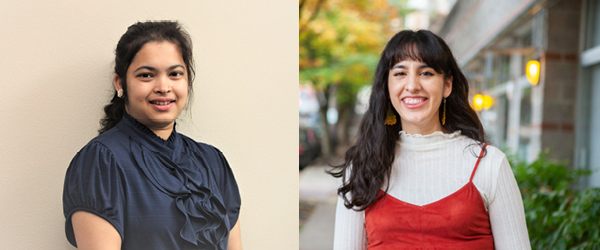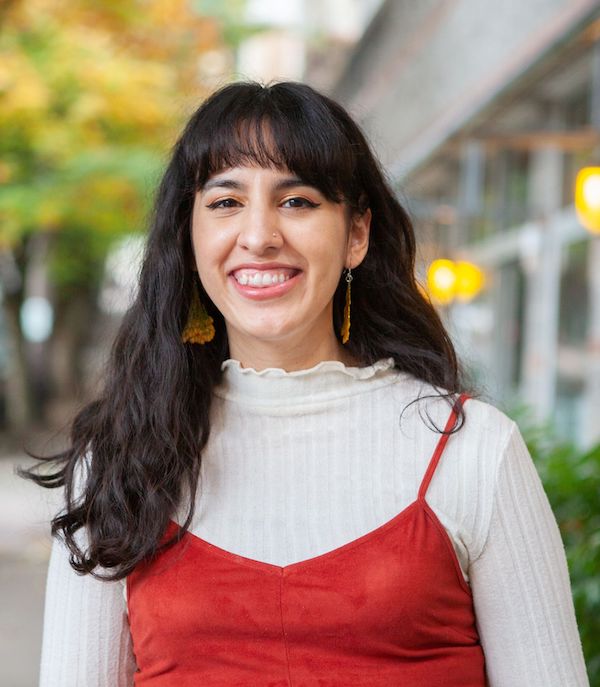Two Portland State Students Awarded WTS Transportation Scholarships

Each year, the Portland Chapter of WTS bestows scholarships to assist exceptional women in their educational pursuits in the field of transportation. The scholarships are competitive and based on the applicant’s specific goals, academic achievements, and transportation related activities. Two of the five 2020/2021 scholarship awardees are Portland State University students! WTS Portland will be celebrating all of the awardees during an online happy hour on Wed, January 27th at 5PM (PT) - RSVP here.
Apy Das (Helene M. Overly Memorial Scholarship)
Apy Das is a master’s student in the department of civil and environmental engineering at Portland State University. She got her bachelor of science degree in civil engineering in Bangladesh, where she worked on traffic accident black spots and road safety in the city of Chittagong, Bangladesh. After starting her studies at Portland State University, she feels grateful to think of it as a great scope to elaborate her understanding and learn more about transportation research work in the US. She is very interested to work for vulnerable road users to build a future with safe road networks to fulfill the goal of Vision Zero. At the same time, she also wants to contribute her knowledge to making a more meaningful and equitable transportation environment for all road users. During her free time, she really enjoys spending time with her loving daughter and reading books to her, cooking her favorite dishes, gardening and traveling."I strongly believe that diversity and equity are powerful tools at our disposal – we should make sure that everyone feels included and respected and gets a fair and respectful treatment irrespective of their color, race, gender, economic background and language. This only brings positivity and helps with betterment of human beings." - Apy Das
Natalie Chavez (Gail Achterman Leadership Scholarship)
Natalie Chavez is a second year Master of Urban and Regional Planning (MURP) student at Portland State University. She is a first-generation American Latina and first-generation college student from West Palm Beach, Florida. Her focus is in transportation and community development, while pursuing the Urban Design Graduate Certificate. She is interested in research based on mobility, safety, race, social justice, environmental justice, and overall transportation equity. Identifying herself as transit-dependent, she understands some issues that have affected transit users during the pandemic and how it has largely affected Black and Latinx communities. These past months highlighted and magnified the long history of systemic racism at its core. Natalie has learned from her community and her allies and continues to unlearn behavior that causes harm to other communities. Learning and unlearning are two important aspects to being a leader. As the current MURP student representative of Toulan's Diversity, Equity, and Inclusion committee, she has the platform to use her voice, be a connection to other students who feel unheard, and hold the Toulan school accountable. Natalie wants to implement transformative justice by focusing on human behavior and not only on built systems and environment. Outside of her studies, she likes to explore Portland on her own two feet, make arepas, and slowly learn how to ride a bike."My focus is transportation within a broader social justice framework. I’d like to focus on safety in active and public transportation, which is different for everyone based on sociocultural factors like race, culture, language, gender identity, sexual identity, citizenship, economic background, and age. There’s a consistent disparity in access to transportation and high-quality infrastructure among communities of color and low-income communities." - Natalie Chavez
The Transportation Research and Education Center (TREC) at Portland State University is home to the National Institute for Transportation and Communities (NITC), the Initiative for Bicycle and Pedestrian Innovation (IBPI), and other transportation programs. TREC produces research and tools for transportation decision makers, develops K-12 curriculum to expand the diversity and capacity of the workforce, and engages students and professionals through education.


